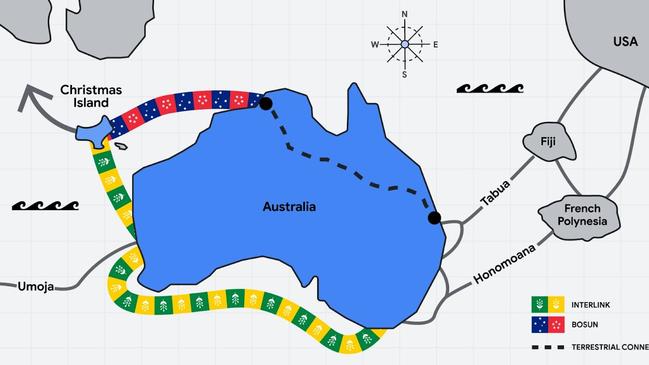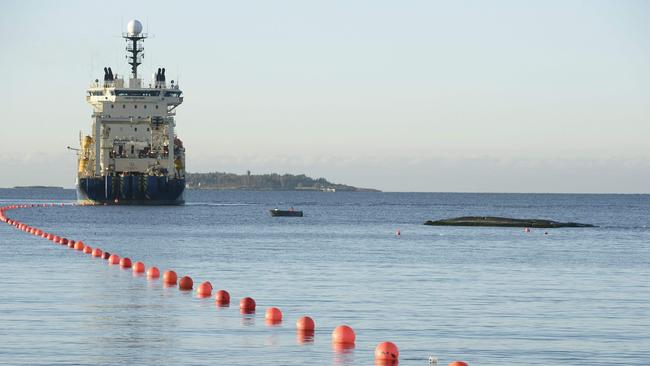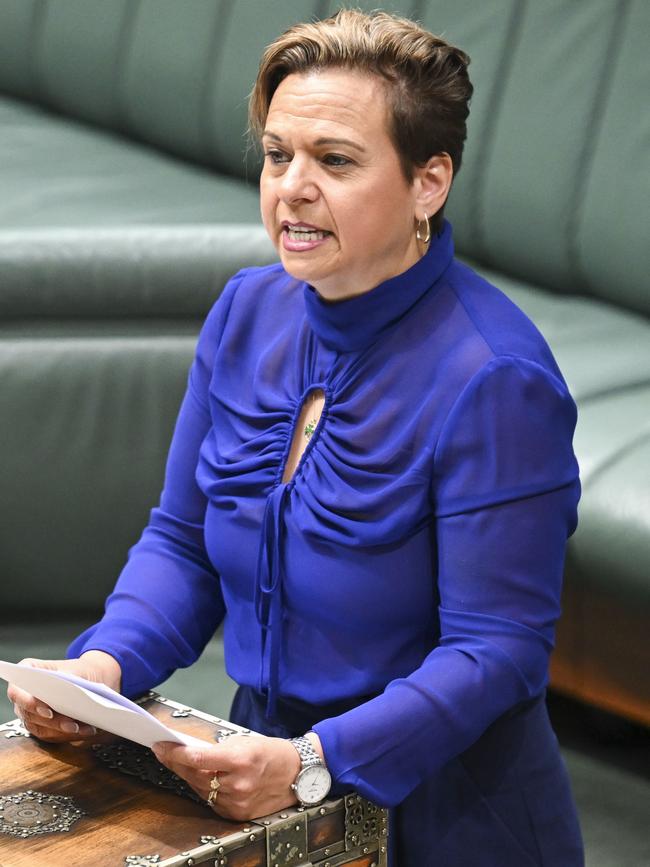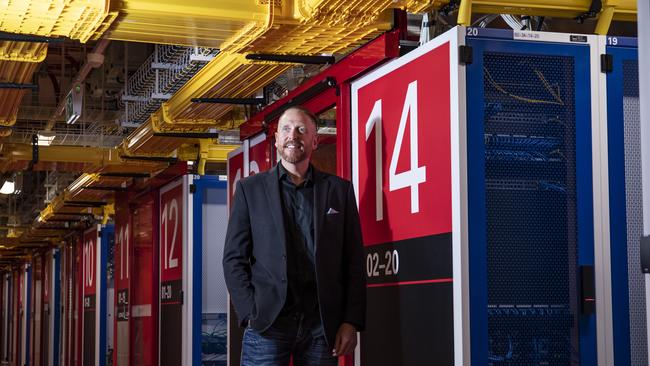Google expands $1bn sea cable project to connect US and Asia via Darwin
The tech giant is expanding its $1bn ‘Pacific Connect’ undersea cable project to link Darwin and Singapore – a move it says will boost ‘reliability and resilience’ of Australia’s internet.

Google is expanding its $1bn undersea cable project to connect Darwin and Singapore via Christmas Island, a move it says will boost “reliability and resilience” of Australia’s internet connectivity and provide a new link between the US and Asia.
Google will also install a new interlink cable to connect Melbourne, Perth and Christmas Island and link to the Homomoana cable system, which connects to the US. This will provide a new interconnection point between America and Asia.
Seabed infrastructure is increasingly critical to national security, with up to 99 per cent of transregional digital data transported by the global subsea data cable system and becoming warfare targets.
Last week a 1200m undersea fibre-optic cable linking Finland and Germany was severed. The two countries said in a joint statement that they were investigating the incident, which “immediately raises suspicions of intentional damage” with Russia suspected of orchestrating the attack as Europe’s security is threatened by the war in Ukraine.

Google has partnered with NextDC, SUBCO, Vocus and state and local governments to deliver the expanded cable system under its $1bn “Pacific Connect” project, which Communications Minister Michelle Rowland praised as “strengthening the resilience of Australia’s own digital connectivity through new and diversified routes”.
Ms Rowland said the investment complemented the federal government’s “active work” with industry and government partners to support secure, resilient and reliable connectivity across the Pacific.”
Google Cloud vice president of global network infrastructure Brian Quigley named the new cable the Bosun subsea cable, which he said refers to the white-tailed tropicbird on Christmas Island and the nautical term for a ship’s deckhand.

“Once operational, Bosun and the interlink cable will deliver new digital pathways for Australia, enhancing the reliability and resilience of the internet within the country and throughout the Indo-Pacific region,” Mr Quigley said.
“In addition to the Bosun subsea cable system, we’re working with partners like Vocus to deliver terrestrial fibre pairs that connect Darwin to the Sunshine Coast, connecting Bosun with the Tabua subsea cable system that connects the United States and Australia to Fiji.”
NextDC chief executive Craig Scroggie said submarine cables were “critical, often unseen lifelines linking Australia to the global digital ecosystem”.
“We’re proud to be working in partnership with Google in establishing cable landing stations in Darwin, the Sunshine Coast, and Melbourne. These investments across our national data centre network will improve every customer’s experience by boosting data speeds, enhancing reliability and redundancy, and strengthening cybersecurity across Australia and the Indo-Pacific.”

Jarrod Nink, interim chief executive of Macquarie-backed Vocus – which acquired TPG’s enterprise fixed and fibre assets, including its NBN competitor Vision Network, for $5.25bn in October – said was also “thrilled” to “deepen our strategic network partnership with Google”.
“Australia Connect will bolster our nation’s strategic position as a vital gateway between Asia and the United States by connecting key nodes located in Australia’s East, West, and North to global digital markets,” Mr Nink said.
“Australia Connect will create a low latency, secure, and stable network architecture while providing added reliability for Google, our customers, and partners.“
SUBCO co-chief executive Belle Lajoie said: “This collaboration allows both parties to harness shared infrastructure, enhancing resiliency, speeding up project delivery, and minimising environmental and community impact”.




To join the conversation, please log in. Don't have an account? Register
Join the conversation, you are commenting as Logout